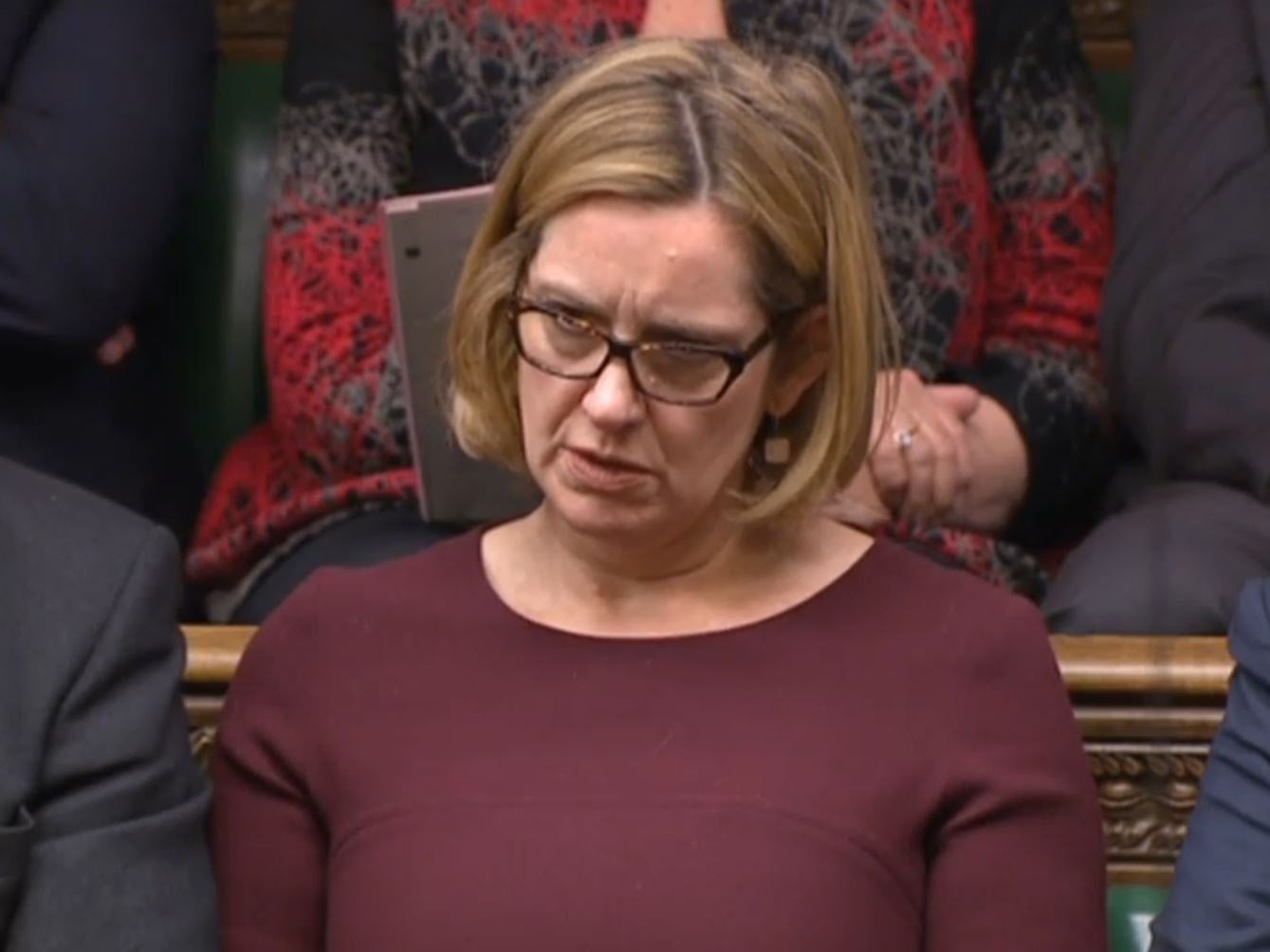Amber Rudd ‘perplexed’ by decision to give US option to potentially execute British-born jihadists
'I am of the view that there are strong reasons for not requiring a death penalty assurance in this specific case, so no such assurances will be sought'

Your support helps us to tell the story
From reproductive rights to climate change to Big Tech, The Independent is on the ground when the story is developing. Whether it's investigating the financials of Elon Musk's pro-Trump PAC or producing our latest documentary, 'The A Word', which shines a light on the American women fighting for reproductive rights, we know how important it is to parse out the facts from the messaging.
At such a critical moment in US history, we need reporters on the ground. Your donation allows us to keep sending journalists to speak to both sides of the story.
The Independent is trusted by Americans across the entire political spectrum. And unlike many other quality news outlets, we choose not to lock Americans out of our reporting and analysis with paywalls. We believe quality journalism should be available to everyone, paid for by those who can afford it.
Your support makes all the difference.Amber Rudd, the former home secretary, is reportedly “perplexed” by her successor Sajid Javid’s decision to tacitly accept that two jihadists, allegedly part of the so-called “Beatles” Isis cell, could be executed in the US.
There had been no discussion about waiving death penalty assurances with regards to Alexanda Kotey and Shafee Elsheikh that Ms Rudd recalled during her time in office, according to The Daily Telegraph.
It was also reported that she does not recall seeing any legal advice on providing intelligence about the duo to US prosecutors while not seeking that they avoid the death penalty.
“The UK does not currently intend to request, nor actively encourage, the transfer of Kotey and Elsheikh to the UK to support a future UK based prosecution,” read a letter sent by Mr Javid to Jeff Sessions, the US attorney general.
“I am of the view that there are strong reasons for not requiring a death penalty assurance in this specific case, so no such assurances will be sought.”
Mr Javid’s failure to demand that the pair, who are currently being held in northern Syria, should face justice in the country of their birth provoked widespread uproar from cross-party MPs who argued that it contravenes Britain’s well established opposition to capital punishment – a practice ended in the UK in 1965.
The coalition government published a death penalty strategy in 2011 professing that the UK aims to increase the number of countries that have abolished the death penalty.
Following a legal challenge by Elsheikh’s mother on Wednesday, the Home Office has suspended cooperation with the US on the matter until the case is resolved.
However, the action might not prevent the transferral of the pair from custody in Syria to the US. “The Americans can do what the Americans want,” a government source told The Independent on Friday.
In any case, British authorities might have already shared key information from its four year counterterror investigation into Kotey and Elsheikh to their American counterparts.
Elsheikh and Kotey were raised in Britain and allegedly helped perpetrate a slew of killings of UK and US citizens, including the British aid workers Alan Henning and David Haines and the American journalists James Foley and Steven Sotloff, in territory held by Isis during the Syrian civil war.
The UK and the US governments had been negotiating where the men should be prosecuted after Syrian Kurdish soldiers captured the pair, who have been stripped of their British citizenship, in February.
Mohammed Emwazi, another member of the so-called “Beatles”, is believed to have been killed in a US airstrike in 2015; while Aine Davis was jailed in Turkey for seven and a half years after being convicted of being a member of a terrorist organisation.
Under the Extradition Act 2003, the UK is prohibited from sending someone to a country where they could face the death penalty – unless the government has received an assurance that capital punishment will not be imposed.
Elsheikh and Kotey, however, were not apprehended in a British sovereign territory and therefore have not been subject to extradition proceedings.
Join our commenting forum
Join thought-provoking conversations, follow other Independent readers and see their replies
Comments